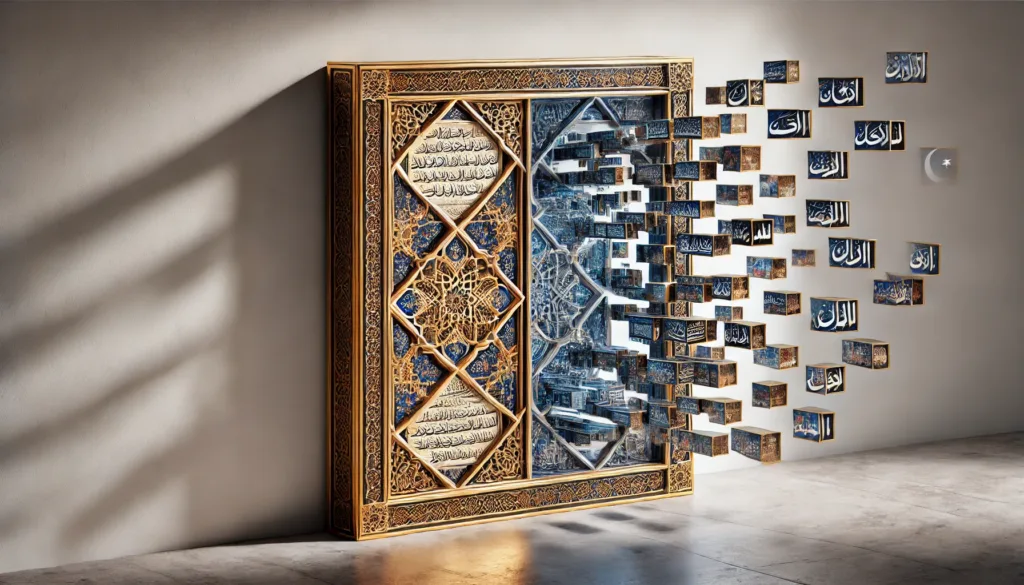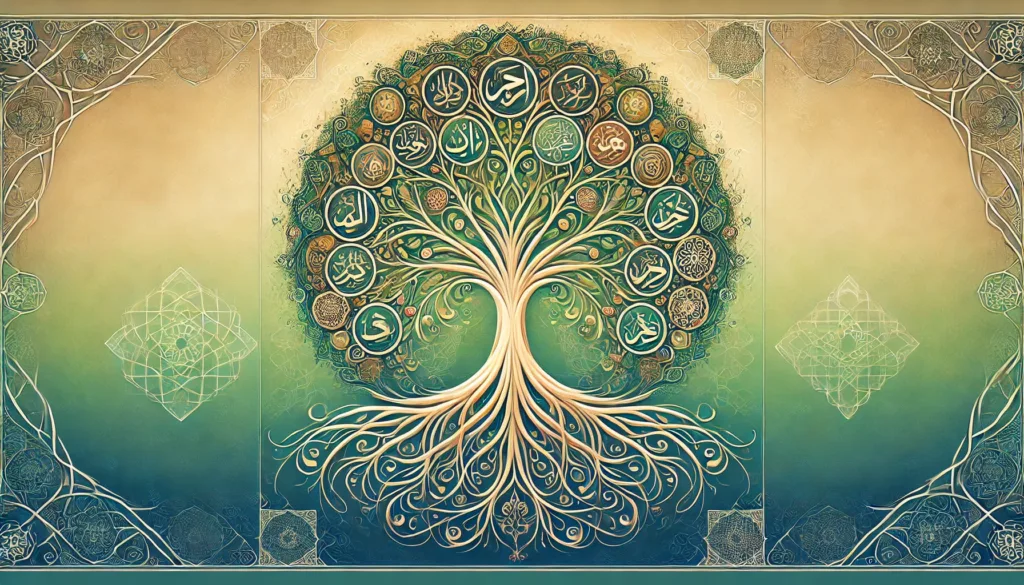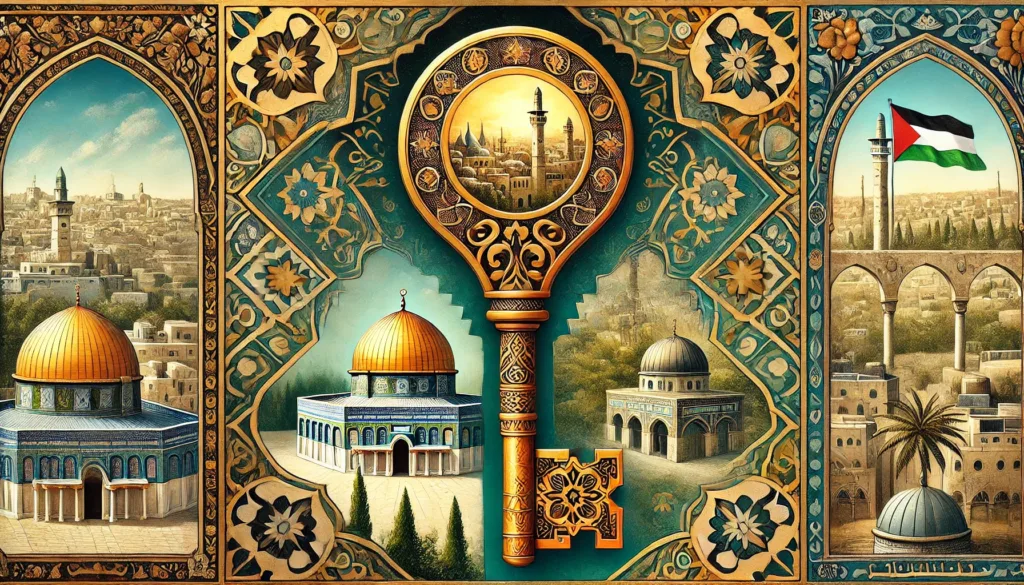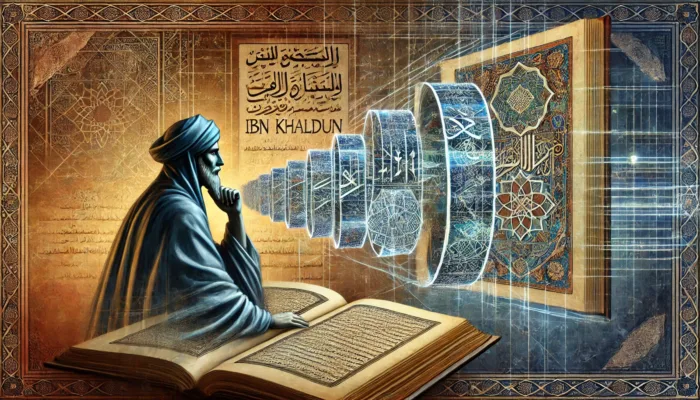Table of Contents
Introduction
The “100 Questions in Islamic History” series begins with exploring history’s vital role in contemporary life. This article examines how studying history enables individuals to understand present circumstances and anticipate future developments while addressing common skepticism about historical studies’ relevance. The complete series offers additional insights into historical topics.
The Paradox of Historical Truth in an Age of Distortion
Question One: How can historical accounts be trusted when contemporary events face distortion?
Answer: This question, presented diplomatically, could be more directly stated as: “What value do history and historians offer?” This inquiry extends beyond public discourse into academic spheres, where scholars consider it a significant matter. Karl Popper, the renowned philosopher of science, addresses this in his work “The Poverty of Historicism“.
The core argument presented by such thinkers suggests that history consists of mutually accepted untruths. They argue that without the ability to travel through time and verify historical narratives, it becomes impossible to authenticate the accounts preserved in books and oral traditions. Their position maintains that since there exists no means to evaluate these historical accounts, return to past events, or investigate their unexplored aspects, the entire field of historical study lacks purpose.
The Living Record: Personal History as Evidence for Historical Value
This reasoning may appear sound initially, but consider a practical example: When applying for employment, a curriculum vitae (CV) serves as the primary document. A CV represents one’s professional history, and through its evaluation, organizations determine a candidate’s suitability for a position.

Consider another illustration: The distinction between a person with intact cognitive function and one affected by memory loss lies in their relationship with history – one retains their past while the other does not. The capacity of an individual with memory loss to manage daily affairs and pursue life goals differs significantly from someone with intact memory. This difference proves substantial and unmistakable.
Given that human life spans typically range between sixty to eighty years, with few reaching ninety or a hundred, this brief existence cannot fully encompass the narrative of a nation, civilization, or state. For those seeking to understand the rise and fall of states and civilizations, or to comprehend current circumstances and potential paths forward, a single lifetime proves insufficient. This limitation necessitates historical investigation to examine the lives and accounts of predecessors, enabling an understanding of present reality and paths to success.
Historical Context: A Key to Understanding the Palestinian Conflict
During the Al-Aqsa flood operation – may ALLAH bring relief to the people of Gaza and all Muslim lands – understanding the Palestinian situation requires historical examination. To comprehend the current conflict, one must investigate its origins: The progression of events, the reasons behind Jewish migration from various regions to this area, the local population’s resistance to their presence, and the barriers to coexistence. Historical knowledge proves essential for understanding these present circumstances.
Moving forward from the current situation similarly requires historical insight. Consider two perspectives on the Palestinian issue: one from someone without historical knowledge and another from someone with historical understanding. An individual lacking historical context might propose seemingly logical solutions, such as establishing a unified state called ‘Israetine’, pursuing comprehensive peace agreements, promoting coexistence, or suggesting Palestinian relocation due to Israeli military superiority.
These suggestions aim to resolve the conflict in the present moment. However, someone with historical knowledge possesses awareness of previously attempted solutions, understanding why certain approaches succeeded or failed.
Prophetic Vision: Ibn Khaldun and the Power of Historical Analysis
Ibn Khaldun, one of the most distinguished scholars in Islamic history, demonstrated remarkable foresight by predicting two major events that occurred a century after his death. This validates the value of comprehending historical patterns. He predicted Andalusia’s fall by observing how its people adopted Spanish and Castilian customs, including their tradition of hanging pictures in homes. In his analysis, this cultural imitation signaled an impending military defeat, as detailed in his chapter ‘The vanquished always want to imitate the victor in his distinctive characteristics, dress, and all his other conditions and customs‘. He identified this behavior as a clear indication of eventual military submission.
Imam Ibn Hajar Al-Asqalani, the renowned hadith scholar who authored ‘Fath Al-Bari‘ and studied under Ibn Khaldun, reported his teacher’s prediction about the Mamluk Empire in Egypt. Despite the Mamluks being the dominant power of that era, Ibn Khaldun foresaw that only the Ottomans could overcome them. This prediction materialized more than a century after both scholars’ deaths, showcasing how historical understanding enables future insights.
Due to the brevity of human life, historical knowledge becomes essential for understanding events that span beyond individual lifetimes. Glory be to ALLAH, the human connection to historical narratives appears innate. This natural inclination manifests early, as evidenced by how mothers share stories with their children from a young age. Humans develop an affinity for narrative understanding before engaging with formal sciences or concrete principles.
Quranic Validation: The Islamic Perspective on Historical Consciousness
For Muslims, questioning the value of history becomes particularly inappropriate since one-third of the Holy Quran consists of historical narratives. It would be inconceivable for such a significant portion of ALLAH’s revelation to lack benefit. Therefore, a Muslim cannot doubt history’s importance given its prominence in the Holy Quran.
Ibn Al-Athir explained that these Quranic narratives serve as lessons, as ALLAH states:
“Indeed in that is a reminder for whoever has a heart or who listens while he is present [in mind]“1
(Suraat Qaaf, 50:37)
Those who dismiss these accounts as mere tales mirror the disbelievers who labeled them as ‘legends of the former peoples‘.
This distinction holds profound meaning: dismissing history’s value parallels the disbelievers’ rejection of Quranic narratives as myths. A story without benefit qualifies as legend, but these accounts offer valuable lessons. The Holy Quran presents these narratives for people to derive wisdom and guidance from them.

According to Wilfred Cantwell Smith, a Canadian orientalist:
‘Muslims are the most historically conscious people because their religion is full of historical awareness development‘
He observed that Buddhists and Hindus consider history less significant. Regarding Christians, he stated:
‘The Christian learned from their religion that this earth is corrupt and the true kingdom is the kingdom of heaven, therefore you find the Christian standing in front of the wheel of history to be run over by it, becoming a repetition of the crucifixion and redemption process, while the Muslim resists the movement of history and tries to turn the wheel of history in his favor to achieve ALLAH’s will on earth, and in this process, he also seeks the Hereafter‘
The French orientalist publication ‘Toute l’histoire du monde‘, published by Dar Al-Ma’rifa, asserted:
‘Islam is a religion of heroes more than a religion of martyrs‘
This suggests Islam emphasizes active life transformation rather than passive martyrdom, contrasting with the Christian concept of accepting martyrdom through submission.
Modern Insight vs Manufactured Authority: Contemporary Muslim Leadership
The Muslim nation consistently maintains individuals with profound insight and foresight. Consider Sheikh Hazem Salah Abu Ismail – may ALLAH free him from imprisonment. His significance became evident after Egypt’s coup, as people circulated videos showing his accurate predictions about various events, including the Tiran and Sanafir situation. This led one social media user to humorously observe: ‘Hey folks, is there any incident for which we won’t find a video of Hazem Abu Ismail [predicting it]?’
While insightful individuals persist within the Islamic nation, it currently faces a state of weakness. The prominent figures in media and academia – the elite – are not naturally emerging from the nation but are manufactured by wealthy interests backed by political powers.
These influential groups elevate or diminish individuals according to their preferences, resulting in a cultural and media landscape dominated by those who align with wealthy and politically powerful interests. This situation reflects the prophecy of the Prophet (Peace be upon Him):
“There will come to the people years of deceitfulness when the liar will be believed, and the truthful will be disbelieved, the dishonest will be trusted, and the trustworthy will be distrusted, and the Ruwaybidah will speak’. When asked about the Ruwaybidah, He explained: “The worthless man speaking about public affairs”2
Indeed, these times mirror the era of the Ruwaybidah.
Individual Duty vs Historical Insight: The Balance of Muslim Responsibility
The existence of insightful individuals persists, as exemplified by Sheikh Hazem. However, Muslims bear greater responsibility for action than for foresight, as each person faces individual accountability:
“And all of them are coming to HIM on the Day of Resurrection alone“3
(Suraat Maryam, 19:95)
The pursuit of Islam’s elevation stems not from Islam’s need but from individual salvation before ALLAH, the Exalted and Majestic. Historical patterns demonstrate that during Islam’s periods of triumph, some individuals still faced divine punishment, while during times of persecution and weakness, others achieved Paradise.

ALLAH, the Blessed and Exalted, revealed that even after granting Muslims authority on earth, some would still face divine punishment:
“ALLAH has promised those who have believed among you and done righteous deeds that HE will surely grant them succession [to authority] upon the earth just as HE granted it to those before them and that HE will surely establish for them [therein] their religion which HE has preferred for them and that HE will surely substitute for them, after their fear, security, [for] they worship ME, not associating anything with ME…“4
(Suraat ‘An-Nuur, 24:55)
Despite this promising situation, ALLAH states: ‘…But whoever disbelieves after that…’, indicating continued disbelief among some.
A Muslim’s primary focus lies not in foresight but in fulfilling prescribed duties. During the 1948 catastrophe, those present were obligated to fight with maximum effort, even when circumstances suggested defeat. The responsibility lies not in shaping history but in fulfilling immediate obligations.
While foresight aids in planning, management, strategic withdrawal, and group coordination, fundamental duties remain paramount: ‘Whoever is killed defending their property is a martyr‘5, ‘Whoever is killed defending their honor is a martyr’6.
Conclusion
Therefore, in response to the first question: Historical knowledge enables understanding of divine patterns, guiding appropriate action and offering insight into future developments.
Sources:
- Mohamed Elhamy. هل تاريخنا مزور ؟ 100 سؤال في التاريخ | الحلقة 01. YouTube Video.

